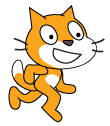4th May 2016
Summative - end of
Formative - through out the journey
I know which one I like better! Maybe I used my bias there to make my choice more appealing via the description.. :P
Found this article recently and have come back to it a few times so thought I would post about it. I like how it challenges your gut response to a lacklustre term!
I was just going to quote number 6 but it's so good I had to quote it all!
Found this article recently and have come back to it a few times so thought I would post about it. I like how it challenges your gut response to a lacklustre term!
I was just going to quote number 6 but it's so good I had to quote it all!
10 THINGS YOU DON’T KNOW ABOUT FORMATIVE ASSESSMENT
1. Formative assessment is a verb, not a noun. It’s an action performed throughout the learning experience, not some thing that students are given to complete at the beginning, in the middle, or at the end of it. Peek over your students’ shoulders as they work, capture evidence of their progress toward the established learning target, and use what you learn to inform your feedback and what you teach next. This three step approach for over-the-shoulder feedback can help.2. What matters is their assessment and your assessment, not the assessment. When teachers and students establish clear targets and outcomes, studying how they are achieved can happen in a variety of organic ways without disrupting the learning experience by stopping to test or quiz. What matters most with formative assessment is our assessment of growth and why it is or isn’t happening. Rather than “building” formative assessments, we would do well to pinpoint our targets, identify assessment moments that occur within the learning experience, and establish solid habits of documentation. Our savvy analysis of this evidence and timely response is what matters most, not the construction of disruptive tasks and tests.3. The only summative assessment that benefits learners is one that also serves as a formative assessment. If we aren’t using summative assessment findings to inform instruction, then why do we give them at all? I understand that all good practice leads to the assessment of mastery, but shouldn’t that assessment of mastery inform continued learning and teaching moves? If it doesn’t, then I’m struggling to understand why we subject kids to summative assessments, other than to evaluate them and give them grades. Please, jump into the comments and push my thinking here, because I’m still rolling these questions around in my head, and I realize that what I’m suggesting may be disconcerting for some.4. Learners do not have to complete the same task at the same time in order for teachers to conduct a formative assessment. In fact, you can study learners practicing targeted skills and demonstrating knowledge of critical content in varied contexts. I find that collecting wide and varied evidence about how learners approach a target helps me better understand how and why they are successful (or not). When we assess all kids using the same tools at the same time, our perspective about the target, performance, and process is quite narrow. It’s hard to uncover powerful interventions this way.5. The more certain you are of your expertise, the more likely bias will compromise your formative assessment practices. Historically, teachers have been expected to have answers and solutions. We’ve been pressured into playing experts, and we’ve struggled to admit what we do not know. Admitting this makes us vulnerable to a certain level of criticism from those who lack awareness of how complex and unpredictable learning can often be. Certainty and pride are the unfortunate byproducts of this phenomenon, and they close our minds and narrow our vision. It’s okay to own our expertise. It’s also important to put it aside long enough to consider ideas and approaches we may not have otherwise–especially those that fly in the face of our expertise.6. Formative assessment will make your students your very best teachers. Over the last few years, I’ve learned how to presume competence and just let kids try the hard stuff. Instead of assuming an evaluative stance, I simply watch them and document what they teach me. I don’t expect mastery. I expect them to begin and to persevere and to make their learning visible along the way, so I can study it. These are my most profound learning experiences. If you try this, it will change the way you define teaching.7. The best formative assessments focus our eyes on the learning moves that matter most. Rather than checking for correct answers, processes, and products, formative assessment inspires us to study how and why and when. The answers to these questions fuel our best interventions.8. Formative assessment inspires us to redefine our narrow definitions of data. The data collected during formative assessment experiences are often qualitative. We document with purpose, using the tools that can best help us capture learning as students make it visible to us. We curate this data in varied spaces, using displays that differ from typical quantitative data displays.9. Feedback is the byproduct of formative assessment done right, and grades are the byproduct of formative assessment gone horribly wrong. Grades do more harm than good in any context, but when we grade formative assessments, we penalize learners for failing to master content and skills that haven’t been taught or practiced. This is more than inappropriate. It’s unethical.10. Physical education teachers, music teachers, coaches, and counselors were doing formative assessment before formative assessment was cool. Eager to understand how great teachers use formative assessment to help learners grow? Seek out the best physical education teachers, coaches, music teachers, and counselors you know. Ask them how they assess the learners they serve. Ask them how and when they intervene. Ask them how they got better at growing great learners. We have much to learn from them.


